Get Rid of Slugs in Your Garden: 6 Humane Ways
-
Pete Ortiz
- Last updated:
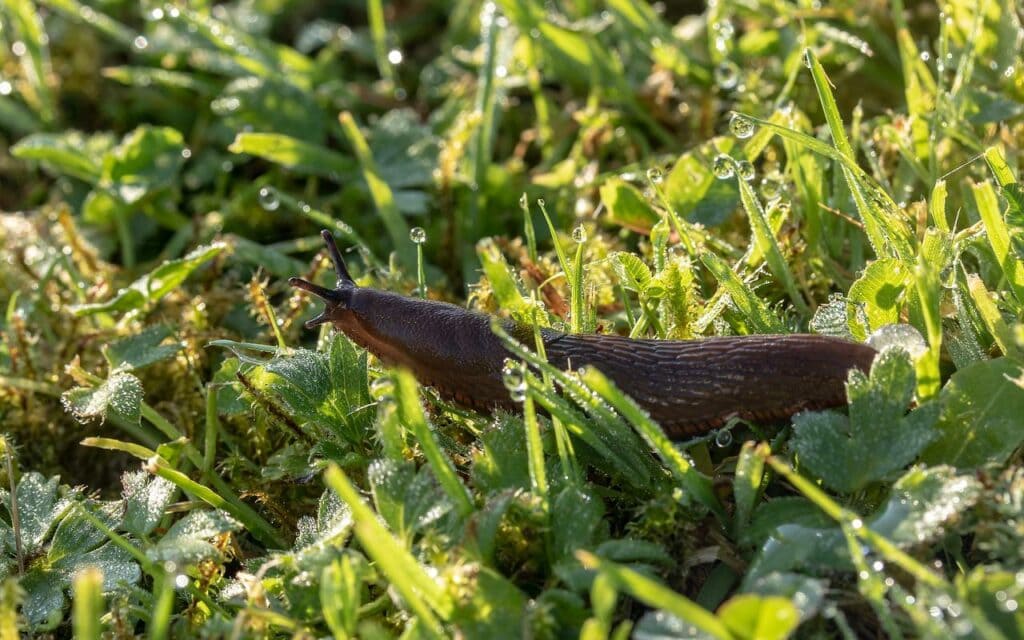
These little, slimy pests are one of the nightmares of every gardener. The worst part of slugs invading your garden is that they can reproduce quickly. Research has shown that a slug can lay up to 500 eggs annually, and these eggs only need to be about 3 to 6 months old to be mature enough to start reproducing.
Gardeners have found some effective methods to get rid of slugs, but some of these methods are toxic and end up affecting your plants. In this article, we will show you five ways to naturally get rid of slugs in your garden.
What Attracts Slugs to Gardens?
Slugs love damp, moist areas, and what better place to find constant moisture than in a garden? Slugs find comfort in the soft leaves of plants in a garden, and they can easily hide between leaves to shield themselves from sun or rain.
Since gardens are watered regularly, slugs find it comfortable to build their shelter and find solace in the warm leaves of plants and untended weeds or stay buried underground. There is only one problem with this—they get hungry, and do you know what their favorite meal is? Plants!
How Do Slugs Harm the Garden?
Slugs can cause severe damage to your garden. Here are some ways that the slugs can be destructive;
1. Chewing on plant tissues with their file-like mouths
Slugs love to feed on plants, and their favorite kinds of meals are the young, tender plants with succulent nodes and leaves. If you have newly sprouting plants in your garden, slugs can smell them from miles away and will always choose them over the older plants.
Besides destroying new lives in your garden before they even get a chance to survive, slugs have a unique shaped mouth which makes them leave irregular holes on your plant leaves and fruits.
2. They feed on fruits
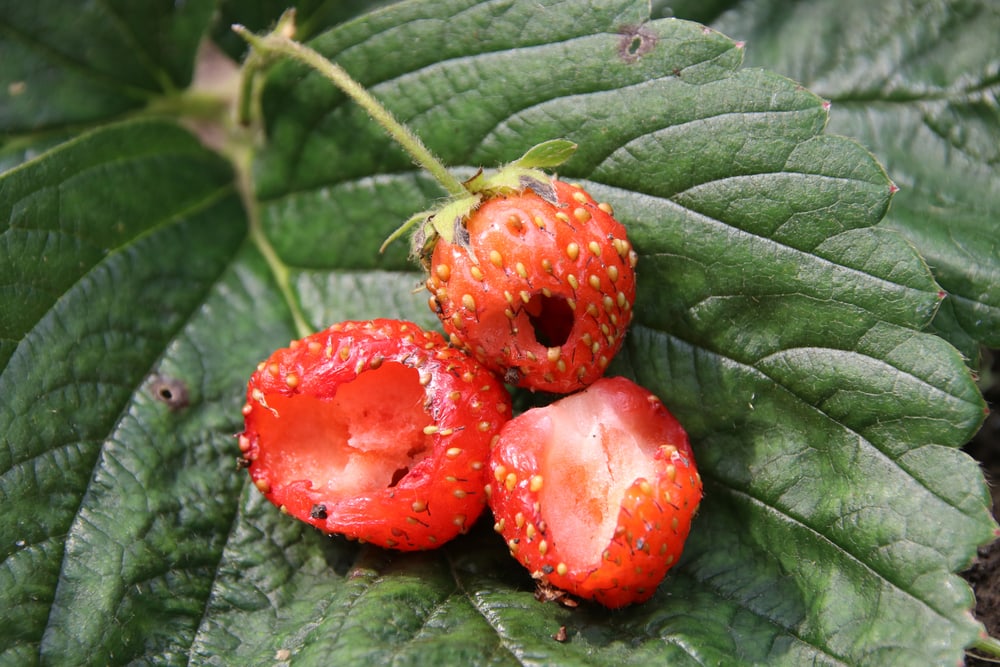
If you notice a lot of holes in your fresh strawberries and tomato fruits, then the slugs in your garden are probably having a field day. A garden infested with slugs will likely produce fruits that are rotten or rough looking.
3. They threaten the roots of your plants
Because slugs love to spend a lot of time underground seeking warmth and moisture, they are very likely to damage the roots of new plants that are still finding their footing.
Since they have a large feeding capacity and are usually numerous, you can be sure to lose a lot of harvests when your garden is slug-infested.
How to Identify the Presence of a Slug in Your Garden
Because these little pests are so good at hiding, have no shells to expose their hiding place, and are mostly dark colored—mainly grey or dark brown—it might not be easy to trace and note their presence in your garden.
Here are a few tips that can help.
1. They leave a slimy secretion wherever they go
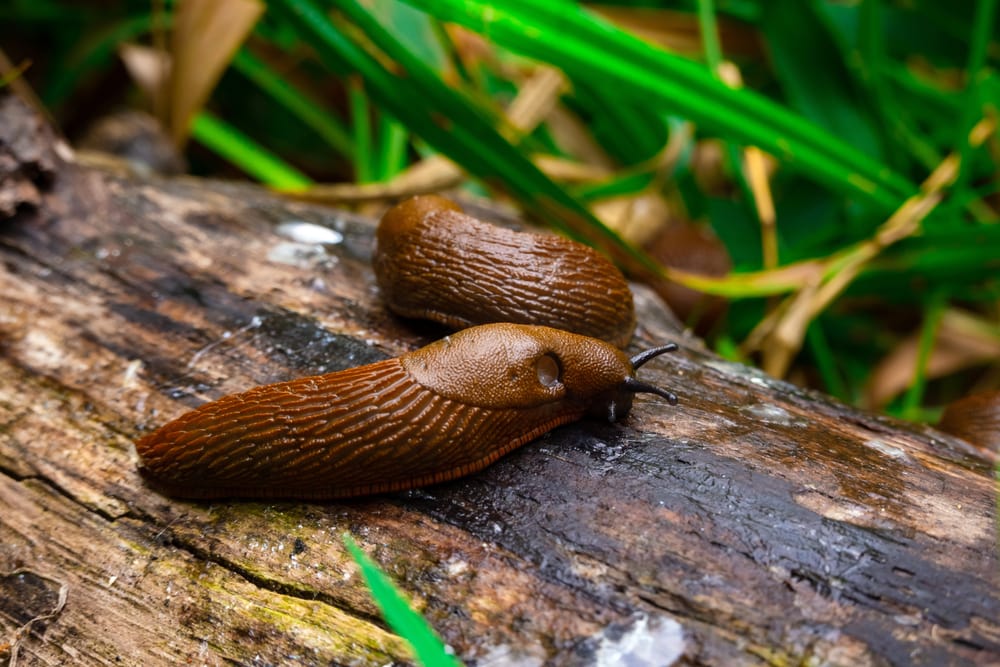
Slugs mostly feed at night, so if you visit your garden in the early morning hours and see some trails of slime, then slugs may be hiding somewhere in your garden, probably getting a good day’s rest from all the feeding they did all night long.
2. Dig holes
Dig shallow holes of about 4 inches in specific areas around the plants in your garden and cover the holes with a wooden board. After some days, check the hole, and you will likely see these slugs lying lazily in the holes since someone helped them build a warmer home.
3. Look for irregular patterned holes on your leaves, stems, and fruits
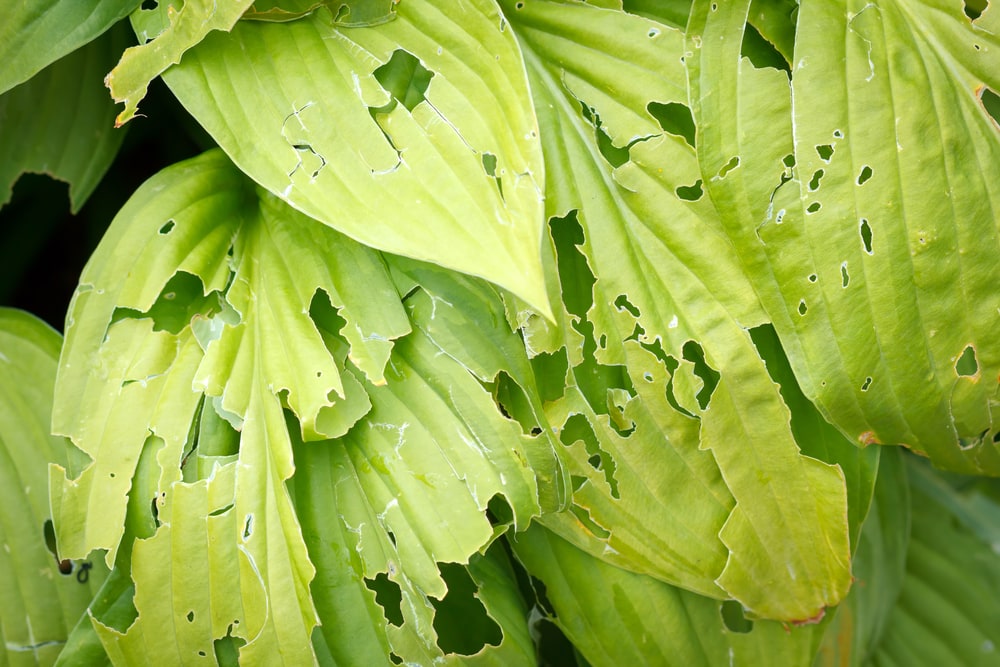
They leave their trademark behind, so if you start noticing these holes in your plants, then there is a high possibility that slugs are present.
The 6 Ways to Naturally Get Rid of Slugs
1. Repel Them
What better way to tell them they are not welcome in your garden than to put in stuff that they do not want? Here are some things that can repel them.
Barriers
Slugs have to crawl to move. They need a soft surface to do this crawling since they have no shell and their skin is sensitive. So, create a mini-fence around your plant in your garden and lace the walls with hard materials like eggshells, pebbles, sand, and other materials that will make them change their minds when they start climbing.
Introduce their predators into your garden
Some birds, frogs, toads, and ground beetles are natural predators of slugs and will feed on them and their eggs. Ground beetles love white clover, so you can attract them to your garden by planting this, then watch the population of slugs decrease.
Remove garden debris
A lot of gardeners are fond of leaving garden debris on the soil. If you have some mulch, you should consider taking it out after it has done its job. Slugs find solace in garden debris and can lay as many eggs as they want to there.
2. Remove Them Manually
If you have a small garden, or you do not think the population of slugs in your garden is much, you can simply grab a flashlight, a bucket, and a hand glove and head out at night when the weather is warm and moist, and they are most likely feeding.
Find them, pluck them out, and put them in the bucket. You can then relocate them for better use in your compost and keep them far from your garden where the birds can find them and get some dinner.
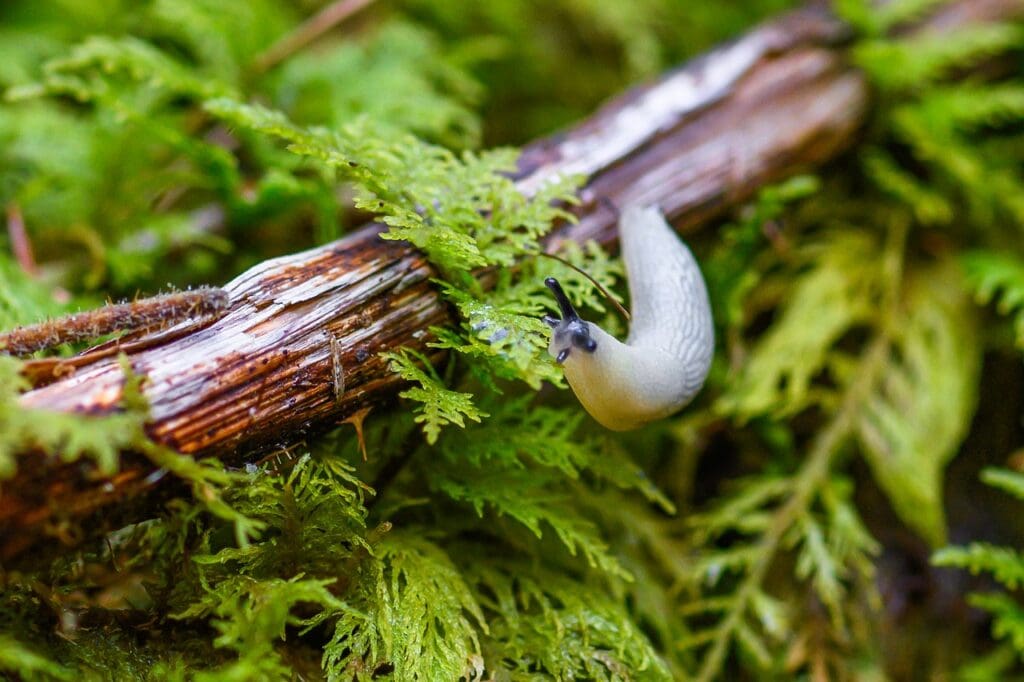
3. Plant Trap Crops
Find a favorite plant of slugs like marigolds, sunflowers, or hostas and plant them in your garden. Then, when all the slugs start getting attracted to the new kid in the block and spending a lot of time on that particular plant, uproot the plant on a warm night when they are likely feeding and get rid of it.
Also, you can leave the trap plant in the garden as long as it is not close to other plants. They will all prefer that plant and spend more time on it.
4. Spread Some Ground Coffee Grounds Around Their Favorite Plants
Slugs do not like ground coffees at all. They can smell it from a distance and would never go close to it. Spread this around their favorite plant, and they will be on their way out of your garden in search of something more interesting pretty soon.
5. Create a Garden That Is Hostile to Them
Since they like dark places where they can hide, keep your garden tidy and spacious and ensure that it is well lit. This kind of environment automatically tells the slugs that they are not welcome.
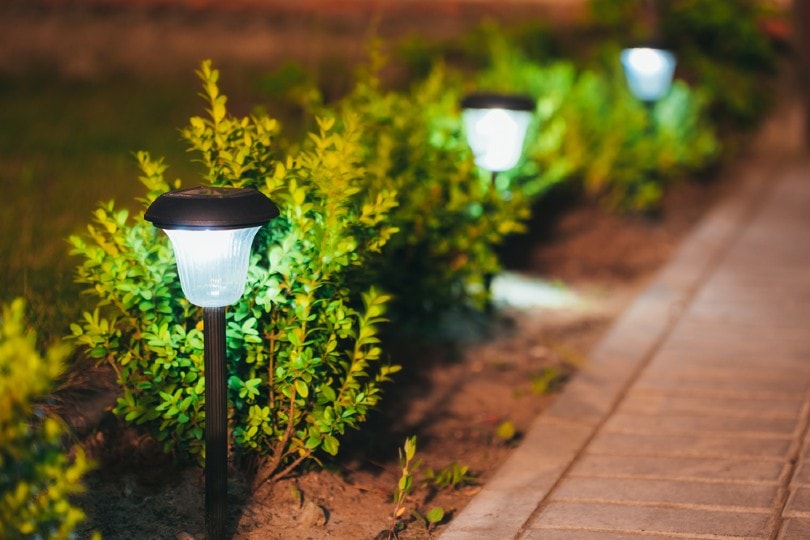
6. The Beer Trap
This will likely lead to the death of the slug, but if you do not mind, then try it. Take a cup that is half filled with beer and bury it halfway in the ground in your garden. Slugs are attracted to the smell of beer and will soon come around to check what all the fuss is about and, of course, end up in the cup.
Conclusion
Other chemical pesticides can quickly clear the slugs off your garden. However, this might negatively affect the soil and plants, and the smell might even affect kids or pets around the environment. Natural methods work just as well and are safe for children and pets.
See Also:
Featured Image Credit: Myriams-Fotos, Pixabay
Contents



